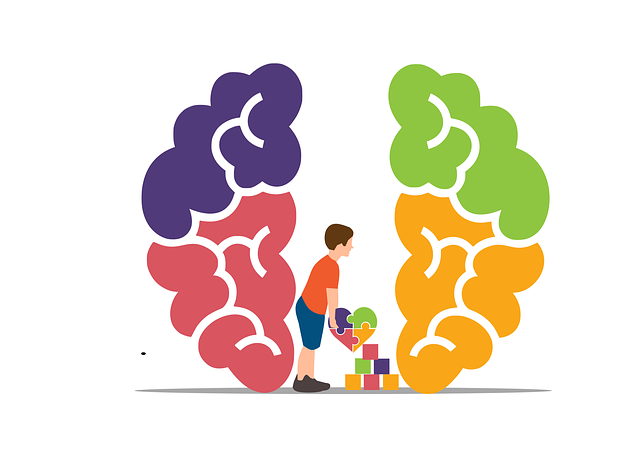Depression among blended families in Littleton is a significant concern due to adjustment issues and reconciliation dynamics. Litleton Blended Families Therapy offers tailored family therapy sessions led by professionals to address underlying problems, improve communication, and create coping strategies. Parents can also learn stress management techniques through community workshops. Early sign recognition and proactive strategies, including regular exercise, sleep hygiene, and positive thinking, are encouraged. Lifestyle changes and holistic approaches like mindfulness meditation and creative outlets are key to preventing depression, with community programs further supporting these efforts. Litleton Blended Families Therapy specializes in combating depression within blended families by fostering open communication, understanding family dynamics, teaching coping strategies, promoting healthy stress management, and preventing burnout.
Depression is a prevalent challenge, especially within blended families, where unique dynamics can complicate mental health. This article explores strategies to prevent and manage depression, offering insights tailored to the specific needs of blended households. We delve into understanding the condition’s impact, identifying early signs, and providing effective lifestyle changes and coping mechanisms. Additionally, we highlight the role of professional support, specifically focusing on the benefits of Littleton Blended Families Therapy for navigating these complexities.
- Understanding Depression and its Impact on Blended Families
- Identifying Early Signs and Symptoms: A Proactive Approach
- Lifestyle Changes and Coping Mechanisms for Long-Term Wellbeing
- Professional Support and Therapy: The Littleton Blended Families Therapy Perspective
Understanding Depression and its Impact on Blended Families

Depression is a complex mental health condition that affects individuals from all walks of life, including those in blended families. A blended family, often formed through divorce, remarriage, or adoption, presents unique challenges and dynamics that can influence mental well-being. The transition period, adjustment to new living arrangements, and the need for reconciliation among stepparents, stepsiblings, and biological children can contribute to elevated stress levels and an increased risk of depression.
In Littleton blended families, seeking therapy as a family or individually can be transformative. Family therapy sessions facilitated by trained professionals help identify and address underlying issues, enhance communication, and develop coping strategies tailored to the specific needs of the blended family. Additionally, mental health professionals can guide parents in implementing effective stress management techniques, such as those taught in workshops organized by local community centers, to create a more stable and supportive home environment for all members, ultimately contributing to depression prevention efforts.
Identifying Early Signs and Symptoms: A Proactive Approach

Identifying early signs and symptoms of depression is a proactive approach to prevention, especially within unique populations like Littleton blended families. Therapy services specifically tailored for these familial structures can play a pivotal role in recognizing potential red flags. By fostering open communication and providing a safe space, therapists can help individuals and families detect subtle shifts in mood, energy levels, and interest—signs that might otherwise go unnoticed.
This proactive mindset extends beyond therapy sessions, encouraging everyone involved to remain vigilant regarding changes in behavior, sleep patterns, appetite, and overall emotional state. Incorporating practices such as regular exercise, adequate sleep hygiene, and cultivating positive thinking can significantly contribute to burnout prevention strategies for healthcare providers within these families, while also promoting emotional well-being promotion techniques that benefit all members.
Lifestyle Changes and Coping Mechanisms for Long-Term Wellbeing

In the pursuit of long-term wellbeing, lifestyle changes and effective coping mechanisms play a pivotal role in depression prevention. Engaging in regular physical activity, maintaining a balanced diet, and prioritizing sufficient sleep can significantly impact an individual’s mental health. These holistic approaches not only promote overall health but also foster resilience against depressive episodes. For instance, Littleton Blended Families Therapy emphasizes the importance of these lifestyle adjustments as part of its comprehensive treatment approach.
Additionally, developing robust coping strategies is essential for managing mood and stress levels. Techniques such as mindfulness meditation, deep breathing exercises, and engaging in creative outlets can help individuals navigate challenging situations. Community Outreach Program Implementation and Public Awareness Campaigns Development centered around mental health can further enhance these efforts by providing support networks and educating the public on recognizing and addressing depression symptoms early.
Professional Support and Therapy: The Littleton Blended Families Therapy Perspective

Many individuals struggling with depression seek solace through professional support and therapy, recognizing its profound impact on mental well-being. Littleton Blended Families Therapy offers a unique approach, focusing on blended families and their specific challenges. This form of therapy provides a safe space for family members to navigate complex dynamics, fostering open communication and understanding. By addressing underlying issues and teaching effective coping strategies, therapy can be a powerful tool in depression prevention.
The perspective of Littleton Blended Families Therapy goes beyond individual symptoms, considering the intricate relationships within families. It aims to reduce the Mental Illness Stigma Reduction Efforts by normalizing conversations about mental health, encouraging support systems, and promoting healthy stress management techniques. Additionally, this therapeutic approach prioritizes burnout prevention, equipping family members with tools to maintain resilience in their daily lives.
Depression prevention is a proactive approach that can significantly benefit blended families. By understanding the unique challenges these families face, identifying early signs, and adopting lifestyle changes, individuals can foster long-term mental wellbeing. The article has highlighted various strategies, including professional support from Littleton Blended Families Therapy, which offers tailored therapy to address depression effectively. Embracing these practices can create a supportive environment, enhance resilience, and promote overall happiness within blended families.












